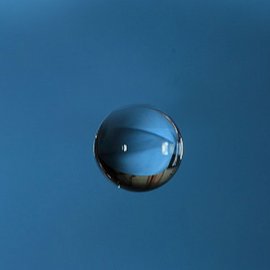Global Water Contract, Part 2
-
English
-
ListenPause
I’m Peter Neill, Director of the World Ocean Observatory. In the last edition of World Ocean Radio, I described the Global Water Contract, put forward in 1998 by a private committee in response to the growing fresh water crisis worldwide that is estimated to result in the deprivation of some 3 billion people from access to water supply to meet the basic needs of human survival. The Committee argued for a radical shift in how fresh water should be conserved, managed, treated, and allocated, based on the premise water is a public, not private resource; that a daily supply is an inalienable human right; and that availability and pricing reflect a change in access, pricing, and conservation for all peoples and ensuing generations. Based on this revolutionary premise, the Committee goes on to make a series of progressive recommendations: First, the citizen must be at the center of decision-making, implying a high degree of democracy at the local, national, continental, and world level. “By definition, water calls for decentralized management and transparency. The existing institutions of representative democracy must be strengthened. When necessary, new forms of democratic government have to be created. Participatory democracy is unavoidable... The new coherent regulatory framework at international and global level must be designed and implemented, enhancing the visibility of a sustainable water policy at the global level by the global community.” Second, success must be founded on co-operation, mutual respect, and effective partnership. "’Partnerships for water’ is the inspiring principle behind all the plans that have permitted the efficient resolution of conflicts which in certain regions of the world have traditionally poisoned relations between riverside communities who shared the same hydrographic basin. Indeed, we support a real local/national/world and real public/private partnership. A sustainable water management system is in the general interest cannot but be founded on the respect for cultural diversity and socio-economic pluralism. A partnership predominantly subject, as at present, to the logic and interests of private actors in relentless competition against each other for market conquest could only do harm to the objectives of access to water for all…” Third, specific steps toward this goal are as follows: the creation of a network of “Parliaments for Water” wherein legislatures create a new legal framework based on these new premises of ownership and management; the creation and validation of a “World Water Treaty;” the development or modernization of the systems of water distribution and sanitation for the 600 cities in Russia, Africa, Asia, Latin America, and European countries which will have more than a million inhabitants by the year 2020 and whose water system is even today obsolete, inadequate, indeed, non-existent; the fight against new sources of water pollution in the cities of North America, Western Europe and Japan where the contamination of soil and both surface and deep ground water is becoming more and more troubling and in certain cases, irreversible; the structural reform of irrigation systems in highly intensive industrial agriculture; a 10- to 15-year moratorium in the construction of new large dams which have so far created considerable short- and long-term problems for the environment, local populations, and the possibility of integrated, sustainable water management. There is no question that public awareness of the world water crisis is growing. Several large organizations and planning endeavors look to water conservation and equitable distribution: the World Health Organization, the World Water Forum, the International Union for the Conservation of Nature, the Millennium Assessment Goals, Pacific Institute, and myriad smaller conservation organizations devoted to preserving lands, river, streams, and wetlands as an integrated watershed system. Here are seven smaller, unconventional organizations from around the world that you might not have heard of: Charity:Water, Miya, Water.org, Columbia Water Center, Three Avocados, WaterIsLife, and Puremadi. Search them on the web. Support them if you can. Our point here is that fresh water and the ocean are a single, irreplaceable natural asset that supports the well-being of human endeavor in its every form. It, like the land, is finite. When we destroy it, when we waste it, when we deprive each other of its essential benefits, we are acting so obviously against our true interest and survival that such behavior cannot be condoned or perpetuated. We must hold ourselves accountable. It is our obligation. We are contracted. We will discuss these issues, and more, in future editions of World Ocean Radio.
In Part II of a 2-part series on the Global Water Contract, World Ocean Radio host Peter Neill explains the Committee's progressive recommendations in response to a growing fresh water crisis that is estimated to affect 3 billion people worldwide.
About World Ocean Radio: Peter Neill, Director of the World Ocean Observatory and host of World Ocean Radio, provides coverage of a broad spectrum of ocean issues from science and education to advocacy and exemplary projects. World Ocean Radio, a project of the World Ocean Observatory, is a weekly series of five-minute audio essays available for syndicated use at no cost by college and community radio stations worldwide.
World Ocean Radio Has Gone Global: A selection of episodes is now available in Portuguese, Spanish, French, and Swahili. For more information, visit http://www.worldoceanobservatory.org/world-ocean-radio-global.
Resources from this episode:
< The Water Manifesto: Arguments for a World Water Contract
< World Health Organization
< World Water Forum
< International Union for the Conservation of Nature
< Millennium Assessment Goals
< Pacific Institute
< Charity: Water
< Miya
< Water.org
< Columbia Water Center
< Three Avocados
< WaterIsLife
< Puremadi
< World Ocean Radio: Global Water Contract, Part I
- Login to post comments



